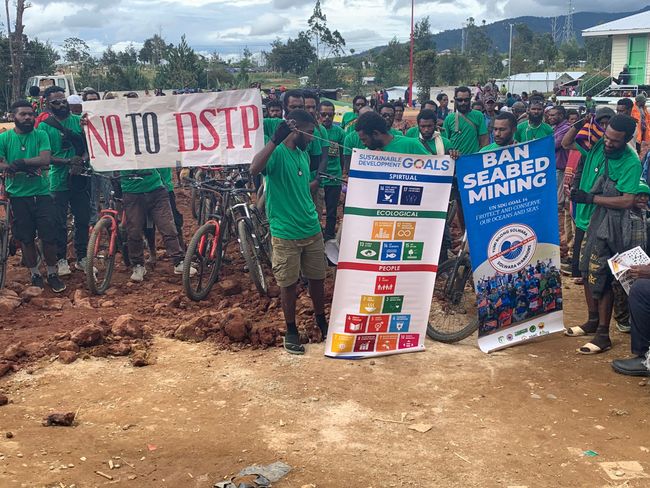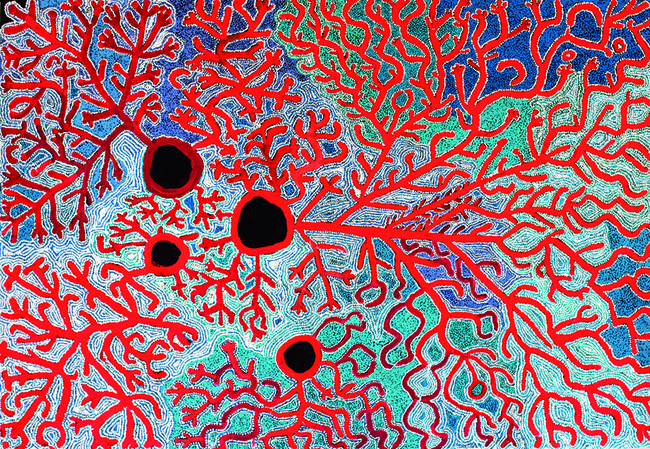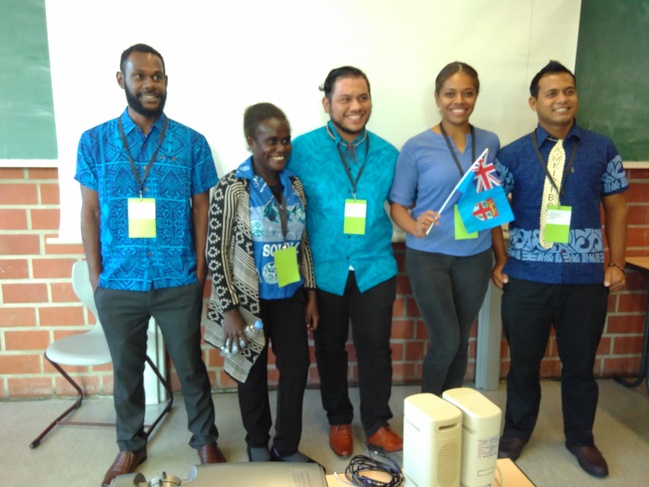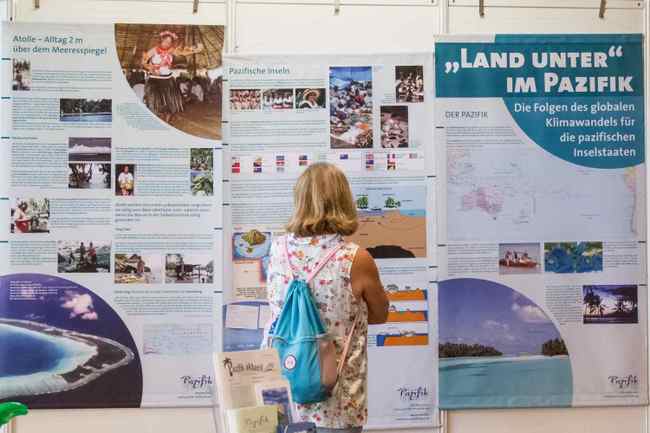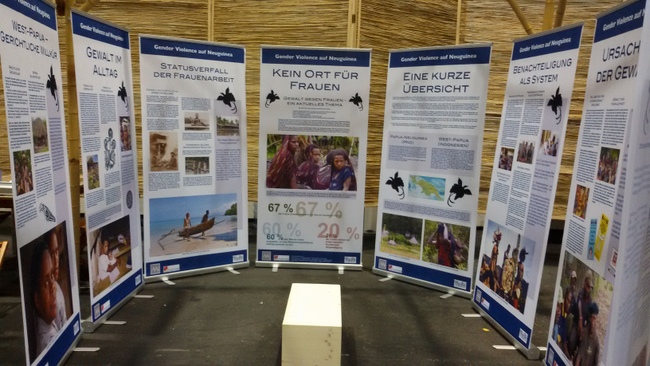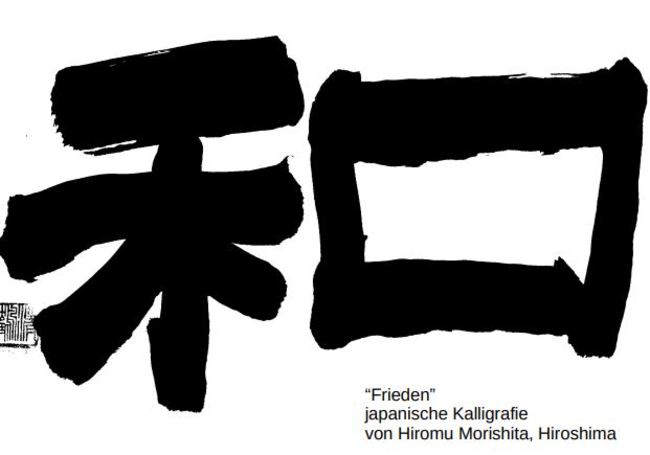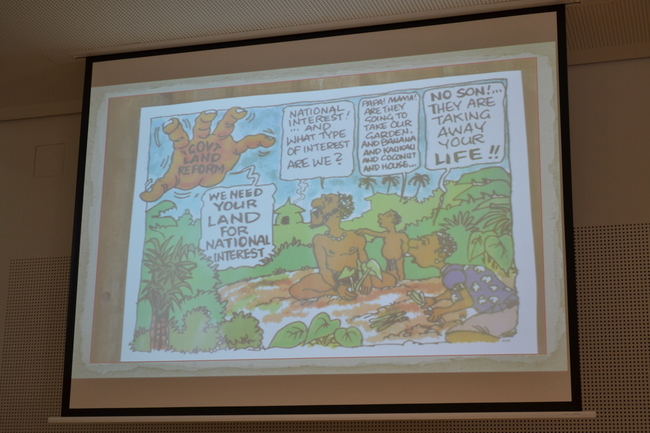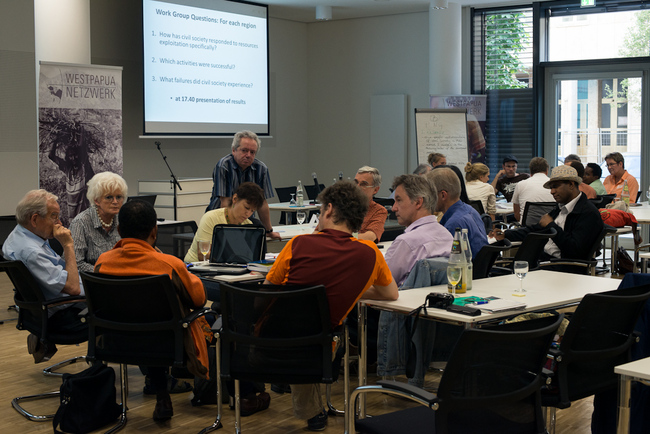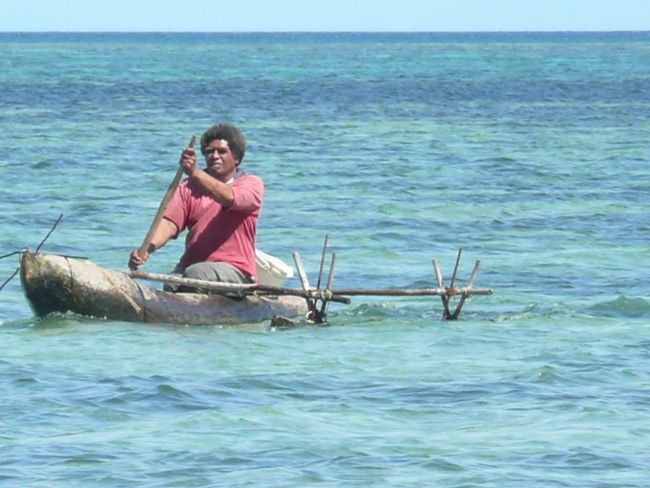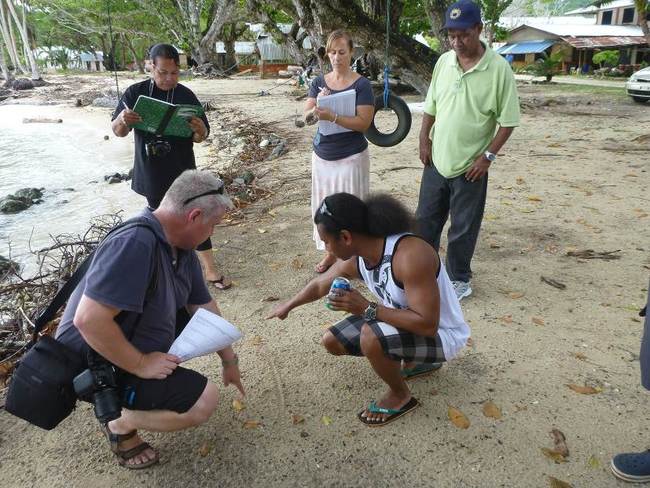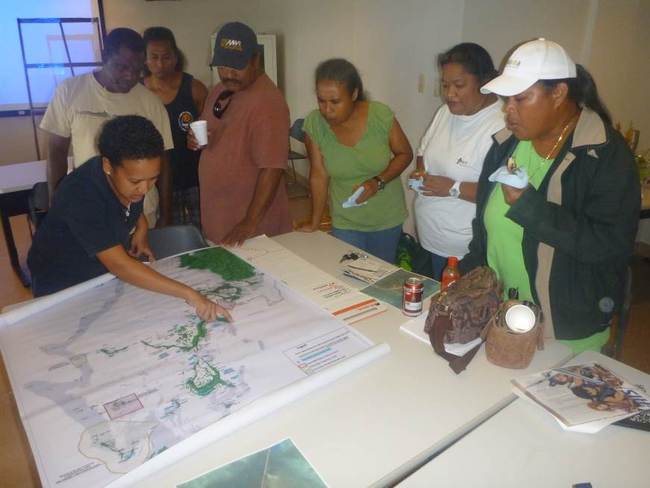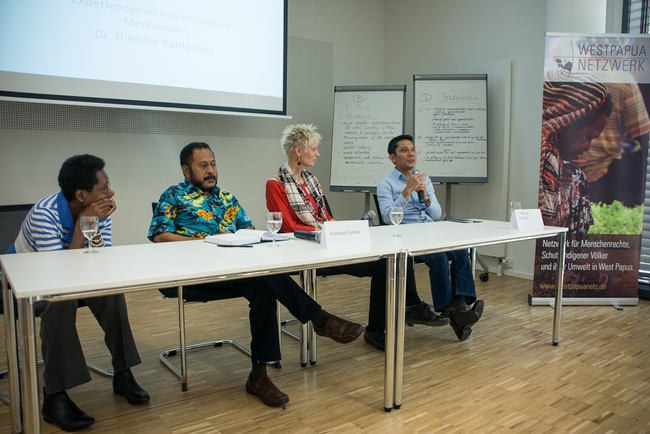Bush refuses to give Bikini victims more money
13.01.2005: Report Evaluating the Request of the Government of the Republic of the Marshall Islands Presented to the Congress of the United States of America
Executive Summary
Background: In 1986, in section 177 of the Compact of Free Association between the United States and the Marshall Islands, the Government of the United States accepted responsibility for compensation owing to citizens of the Marshall Islands for loss or damage to property and person of the citizens of the Marshall Islands resulting from the nuclear testing programs which the United States Government conducted in the Northern Marshall Islands between June 30, 1946 and August 18, 1958, and the two governments agreed to set forth in a separate agreement provisions for the just and adequate settlement of all such claims.
The Compact and the separate agreement (the "Section 177 Settlement Agreement") entered into effect on the same day, October 21, 1986. The two governments agreed that the Section 177 Settlement Agreement, incorporated by reference into the Compact, "constitutes the full settlement of all claims, past, present, and future, of the Government, citizens and nationals of the Marshall Islands which are based upon, arise out of, or are in any way related to the Nuclear Testing Program, and which are against the United States, its agents, employees, contractors and citizens and nationals, and of all claims for equitable or any other relief in connection with such claims including any of those claims which may be pending or which may be filed in any court or other judicial or administrative forum" (Article X (1)).
As part of this full settlement, the two parties agreed that the U.S. would give the Government of the Marshall Islands $150 million to create a nuclear claims trust fund. The U.S Government has no role in the Tribunal’s decisions regarding the distribution of the trust fund among claimants or in the administration of the trust fund.
Article IX of the Section 177 Settlement Agreement provided that "if loss or damage to property and person of the citizens of the Marshall Islands, resulting from the Nuclear Testing Program, arises or is discovered after the effective date of this Agreement, and such injuries were not and could not reasonably have been identified as of the effective date of this Agreement, and if such injuries render the provisions of this Agreement manifestly inadequate," the RMI may request that the U.S. Government provide for such injuries by submitting such a request to the U.S. Congress. Article IX explicitly states that it is understood that it does not commit the Congress to authorize and appropriate funds.
Citing Article IX of the Section 177 Settlement Agreement, the Republic of the Marshall Islands (RMI) submitted a "Changed Circumstances" request to the United States Congress in September 2000, asserting, and seeking additional compensation and remedies for, injuries and losses to the people of the Marshall Islands arising from the U.S. nuclear testing program at Enewetak and Bikini atolls from 1946 to 1958.
Through its request, the RMI seeks over $3 billion in additional compensation and assistance, above and beyond monies provided in the Section 177 Settlement Agreement, to pay for an enhanced national health care system, Tribunal awards for personal injury claims, loss of land use and hardship, and atoll rehabilitation, as well as new money for occupational safety, nuclear stewardship, and nuclear education.
Exposure: The facts regarding radioactive fallout do not support a request under the "changed circumstances" provision of the section 177 settlement agreement. In its request, the RMI asserts that a far wider area of the Marshall Islands than the northerly atolls and islands that are the focus of the section 177 settlement agreement was exposed to dangerous levels of radioactivity. The weight of expert scientific evidence indicates that the present impact of radioactive fallout on the Marshall Islands is limited to the more northerly atolls and islands. Although some islands may never be suitable for communities or food gathering and should remain off limits, most historically inhabited islands in the northern atolls could be resettled under specific conditions. The section 177 settlement agreement recognized that, within the northern atolls, some islands would be more habitable than others. In the section 177 settlement agreement, the Government of the Marshall Islands took responsibility for controlling the use of areas in the Marshall Islands affected by the nuclear program.
Health care: Through its request, the RMI seeks enhanced primary, secondary and tertiary health care systems, integrated with existing RMI health services, to serve the entire RMI population for fifty years. The RMI estimates operating costs at $45 million a year for those fifty years, not including travel and housing costs, and requests $50 million to cover estimated capital costs.
As part of the Section 177 Settlement Agreement, $2 million per year for 15 years was provided from the trust fund to provide medical care to the populations of the four nuclear-affected atolls (Bikini, Enewetak, Rongelap, and Utrik). The Section 177 Health Care Program, originally designed for the people of the four atolls, serves 13,460 enrollees. Funding under the Section 177 Settlement Agreement ended in 2001 in accordance with the terms of that agreement. In addition, Congress mandated in the Compact of Free Association Act of 1985 continued special medical care for the remaining members of the population of Rongelap and Utrik exposed to radiation from the 1954 thermonuclear Bravo test. The U.S. Department of Energy and its predecessors have provided that special medical care continuously for 49 years. In its request, the RMI seeks an enhanced medical care system not limited to the individuals affected by the U.S. testing program. There is no basis for the RMI request for medical care for the entire RMI population under the "changed circumstances" provision of the Section 177 Settlement Agreement.
Furthermore, because the RMI request was submitted in September 2000, it does not take into account the role of the amended Compact of Free Association that took effect on May 1, 2004. Under the amended Compact, RMI Government health sector expenditures will total $15.9 million in FY 2005 and are estimated to be $16.5 million in FY 2006, $16.6 million in FY 2007 and $16.8 in FY 2008. Under the amended Compact, U.S. funds will cover approximately two-thirds of these expenditures.
Personal Injury Claims:The RMI seeks $26.9 million to pay personal injury awards already approved by the Nuclear Claims Tribunal (NCT) in excess of the trust fund.
The U.S. Government played no role in establishment of the NCT's award eligibility criteria, which embrace persons and compensable conditions not recognized under U.S. radiation injury compensation programs. Nor has the U.S. Government played any role in fund management or the investment decisions affecting the proceeds generated by the trust fund. The mixed earnings record of the trust fund is not attributable to the U.S. nuclear testing program and does not provide a basis for a funding request under the "changed circumstances" provision of the Section 177 Settlement Agreement.
Loss of Land Use and Hardship: All losses and damage to property arose before the Section 177 Settlement Agreement entered into force. There are no losses or damage to property that "could not reasonably have been identified." The facts regarding loss and damage to property do not support a funding request under the "changed circumstances" provision of the Section 177 Settlement Agreement. The Nuclear Claims Tribunal awarded Enewetak roughly $244 million for loss of land use and $30 million for hardship. The Tribunal awarded Bikini approximately $278 million for loss of land use and $33 million for hardship. Additional claims are pending for Utrik and Rongelap. In making these awards, the Tribunal exceeded the amount of money provided through the Settlement Agreement for loss or damage to property. The United States played no role in evaluating the Bikini and Enewetak claims or in the Tribunal's judgments on them. Nor, as noted above, has the Government of the United States played any role in fund management or the investment decisions affecting the proceeds generated by the trust fund. The mixed earnings record of the trust fund is not attributable to the U.S. nuclear testing program and does not provide a basis for a funding request under the "changed circumstances" provision of the Section 177 Settlement Agreement.
Atoll Rehabilitation: The Nuclear Claims Tribunal considered strategies estimated to cost from $217 million to $1.4 billion for Bikini and a similar range of options for Enewetak. The Tribunal awarded $251 million to Bikini on March 5, 2001 and $91 million to Enewetak on April 13, 2000 "to restore [them] to a safe and productive state." In making these awards, the Tribunal exceeded the amount of money provided through the Settlement Agreement. There is no "changed circumstance" on which an additional funding request can legitimately be made under Article IX of the Section 177 Settlement Agreement.
An important element underlying the RMI request is the assertion that the United States Government has adopted stricter standards for domestic nuclear cleanup activities in the United States since the 1986 settlement agreement was reached. The current dose limit used by the U.S. Government to protect the public from all sources of radiation is 1 millisievert (mSv) per year. The sievert is a unit of radiation dose which describes the effectiveness of various types of radiation to produce biological effects. A millisievert is one thousandth of a sievert. The current U.S. dose limit has been used to guide cleanup decisions in the RMI before and after the Compact was enacted. Extensive monitoring of individuals on Marshall Islands atolls where cleanup has been effected indicates actual radiation doses are below 0.15 mSv, the value advocated by the Tribunal. RMI cleanup decisions to date have conferred a degree of protection that exceeds all existing U.S. federal agency guidelines as well as the Tribunal's desired standard.
Occupational Safety, Nuclear Stewardship and Education: In its request, the RMI contends that the Section 177 Settlement Agreement does not include important occupational safety, nuclear stewardship or nuclear education programs. These are all programs that the parties could have chosen to include in the full settlement, but they chose not to. They do not constitute "changed circumstances" on which a funding request can legitimately be made under the Section 177 Settlement Agreement. To the extent the Government of the Republic of the Marshall Islands considers these programs are needed, they should be included in the RMI budget, and they could then be considered by the Joint Economic Management and Financial Accountability Committee for possible coverage under a sector grant under the amended Compact.
Der vollständige Text ist hier abrufbar: www.state.gov/p/eap/rls/rpt/40422.htm



